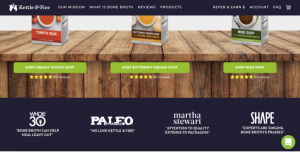Launching an on-demand service is as easy as pie. That’s why apps to simplify every conceivable chore – from food delivery and dog walking, to housecleaning, laundry, and transport – are flooding the market, right? Well, yes, it’s never been easier to build a mobile app for an on-demand service. But launching an app is just the first 1% of building an on-demand service company.
I should know, because I started ZIRX, an on-demand valet parking service just over one year ago. We’ve now parked tens of thousands cars across San Francisco, Seattle, Los Angeles, NYC, Brooklyn, San Diego, and Washington DC, but achieving this scale was much harder than expected. Here are four critical lessons I’ve learned about what it takes to grow an on-demand company from scratch.
Get your Product to People ASAP
If you have the choice between eight hours of market research and getting three people to try your product, choose those three people. What you learn from actual users is always valuable, even if you have to pay handsomely to ‘acquire’ these new customers. Real people experiencing your product will tell you exactly what problems they have with it, and those practical insights help you develop the next version that can succeed on a larger scale. In many cases, you’ll learn things that you didn’t even know you needed to know.
The cost of this act-first, think-later strategy is the possibility of embarrassment. The product we offered the day we launched was, in fact, a little embarrassing. We only offered parking within a seven-block radius in San Francisco and we didn’t offer car washes, gas, or other maintenance services (which are now hugely popular). There were also a number of bugs: the app wouldn’t let customers change their credit card information, and the only way they could was to call us and read out their new card details.
Hearing people point out these no-brainer issues was a little hard to hear. But these comments, more than any pre-launch research we could have done, helped us perfect our product. To put it simply: if you’re launching a perfect product, you’re launching it too late.
Scaling = Growth
There are tons of on-demand service startups because it’s easy to start one. As a result, we’ve lately encountered new companies offering parking services similar to our own. But while it’s easy to start a small services company, it’s incredibly difficult to scale into a large company. There may be many on-demand parking, food delivery, dog walking, and cleaning services, but only a few of those have reached any kind of scale.
The same was true for ZIRX: anybody could (and some did) start a valet parking company while we were getting off the ground, but many of theses companies haven’t scaled. And some service companies are just fine with that; it’s a laudable goal to create a small business — perhaps a dog walking company serving one neighborhood, or a valet service to park a few dozen cars per day. But to build a multimillion-dollar service business is a completely different ballgame, one that requires careful forecasting and strategic planning.
If you want to build a large on-demand services business, put the right building blocks in place that will allow you to scale quickly. Nothing’s worse than wanting to grow, but you can’t, because you don’t have enough people, the right partners, or the right infrastructure.
Solve a Real Problem
To get a consumer to use your service on a regular basis, it has to solve a real problem. If your app isn’t fixing something that’s broken, it won’t ever become indispensable to consumer.
Uber solved a real problem: the broken system of expensive, hard-to-find taxis. No more standing on a street corner at 1am hoping a taxi will pass by. No more waiting on the phone for a dispatcher to hopefully pick up. No more ‘circuitous’ routes that add extra money on the meter. A ride in an Uber car is cheaper, faster, and more predictable than hailing a regular cab.
Similarly, ZIRX solves a big problem: finding safe, affordable parking in urban areas. ZIRX fixes what was broken in urban parking; it eliminates the stress of searching for parking spots and the worry a car might be broken into while street parked. Users save time not searching for open parking spots, and money, since our parking fees are on average lower than standard parking garages. After gathering customer feedback, we also added car washes, oil changes, and other services, taking care of these things while cars are parked with us. First, we solved a real problem: city parking. Then, we added extra benefits. Start by fixing a real problem and you’ll lay the foundation to becoming an indispensible app.
The Best Marketing is Great Product
When we first started offering our product, we spent heavily on advertising. We bought ads on every conceivable medium out there: we had billboards, radio spots, handed out fliers on the street, offered coupon codes and discounts, took out ads on Facebook and Twitter, and did SEO research. All of these things were effective, but, by far, the most effective marketing we’ve done is simply to offer a great service. I learned that if you return someone’s newly-washed car to them in 15 minutes, that’s worth far more than a paid ad. Your happy customers will advertise for you on social media, via reviews, and by word of mouth.
Of course, the flipside of relying on word-of-mouth marketing is that unsatisfied customers will give you very loud, very negative publicity. But if you’re confident in the quality of your service, and can deliver at scale without glitches, word-of-mouth will be worth far more than advertising.
If you had asked me when we started the company what ZIRX does, I would have said it revolutionizes city parking. After figuring out a problem to solve, getting our product into as many hands as possible, scaling quickly, and listening to my customers’ feedback, I now have a different vision for ZIRX; we revolutionize car ownership. But check back with me in a year. I’m sure I’ll have learned a few more lessons by then.
Business & Finance Articles on Business 2 Community(84)
Report Post



